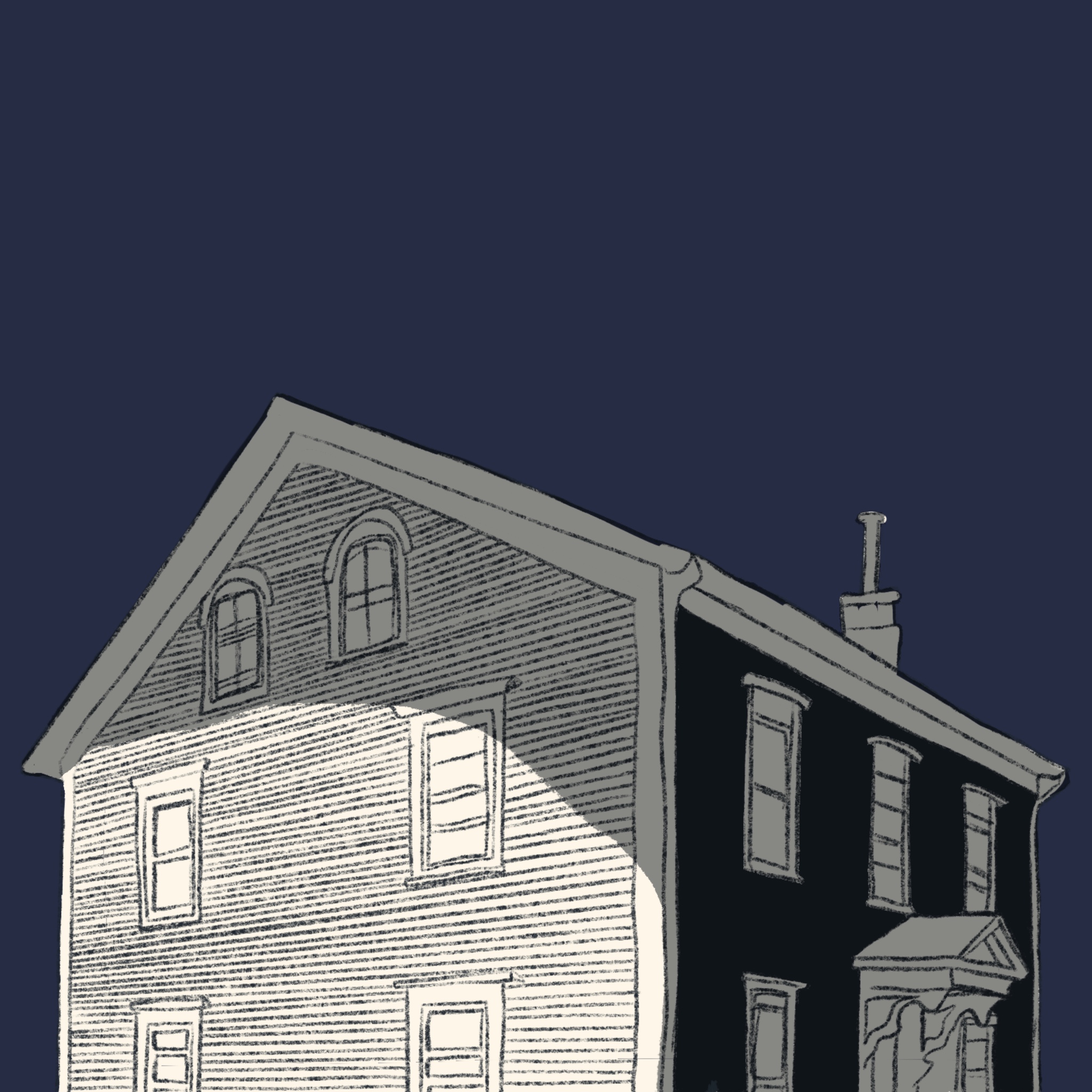Last year, Deshundra Tate, 31, and her 5-year-old daughter, Kendra, died after a gas leak in their apartment at Sunset Village in Cleveland, Mississippi.
For Sharon Brown, those losses still hold a heavy weight. Deshundra was a close family friend, and Kendra was in a wedding renewal ceremony for one of Brown’s sisters.
Brown, a Grizzlies beat writer for the Memphis Flyer, still has photos of her granddaughter and Kendra from the ceremony.
“I kept seeing her face,” she said, “and I just couldn’t believe that she was gone due to the negligence of these people who didn’t really care.”
Sunset Village is owned and managed by the Millennia Companies, a group of real estate companies based in Cleveland, Ohio. Millennia manages about 280 properties, including dozens of properties that, like Sunset Village, receive funding from the US Department of Housing and Urban Development’s (HUD).
In the past four years, at least 25 of Millennia’s properties supported by HUD’s program for privately-owned, multifamily housing have received news coverage for poor conditions, including serious safety problems that led to deaths and injuries.
Since 2019, at least six renters have died and at least seven were injured in Millennia properties due to gas leaks and other safety issues, according to news reports.
Last year, three people died in a fire at Shorter College Gardens Apartments in North Little Rock, Arkansas. A lawsuit alleges residents complained about smelling gas before the fire.

In 2019, seven people were injured in a gas explosion at Calloway Cove Apartments in Jacksonville, Florida, News4Jax reported. One family had reported smelling gas in their unit to the apartment’s management four times before the explosion, which left a mother and her three kids with burns on most of their bodies.
Also in 2019, a woman died in a trash compactor at Carbondale Towers in Illinois, where a lawsuit alleged security equipment for the device wasn’t working or properly maintained.
These deaths and injuries underscore what renters, activists and housing advocates have been saying for decades: The lynchpin to HUD’s accountability system—inspections of federally-subsidized property that should trigger repairs and enforcement actions—doesn’t work.
In response to an interview request, HUD asked Streetlight to send questions by email, to which the agency didn’t respond. The agency wouldn’t answer if HUD has taken any enforcement actions against Millennia in the past four years or if Millennia faced any penalties related to the deaths and injuries at Sunset Village, Shorter College Garden and Calloway Cove apartments.
In 2021, HUD Secretary Marcia Fudge spoke with residents from Millennia-run Gabriel Tower Apartments, where tenants have reported mold, pests and other health and safety issues. Fudge pledged to investigate Millennia, but it’s unclear if the department has done so.
HUD wouldn’t answer if the department has investigated the company.
About a year before the fire at Shorter College Gardens and the explosion at Calloway Cove, both apartments scored an 82 on inspections, HUD data shows. The scores meant the apartments weren’t required to be inspected for another three years.
And before the death at Carbondale Towers, the building’s most recent inspection score was a stellar 99.
[ Support stories like these by making a tax-deductible donation to Streetlight ]
“There’s definitely a big disconnect between the reality of what residents are experiencing and what’s documented,” said Foluke Nunn, community organizer for the American Friends Service Committee in Atlanta.
According to HUD data, dozens of privately owned multifamily properties receiving federal subsidies haven’t been inspected in a decade or longer, despite requirements that they be inspected at least every three years.
Advocates like Bridgett A. Simmons, staff attorney for the National Housing Law Project, have said HUD has been slow to respond when properties have consistent health and safety issues.
“Unfortunately what happens is tenants are trying to get these actors to act, and they ignore tenants until it becomes incredibly impossible to deny how bad the conditions are at these properties,” Simmons said.
As HUD begins transitioning from one inspection system to another this month, renters and tenant advocates are skeptical that the new system will resolve the previous one’s shortcomings.
HUD’s inspection backlog increased during the pandemic
In 1998, HUD created a system to inspect properties it subsidizes, including public housing that’s owned by local housing authorities and multifamily housing owned by nonprofits or for-profit companies like Millennia.
HUD created the program in response to concerns that the agency wasn’t addressing poor conditions at these properties. In the decades since, renters and advocates have said inspection scores don’t reflect the conditions of these apartments, and the system fails to trigger vital repairs and hold accountable landlords who don’t operate safe and livable rentals.
Property owners also have complained that scores are inconsistent, with properties in good condition sometimes receiving inaccurately low scores.
Since the inspection program started, the agency has relied on contractors to conduct its inspections, sometimes resulting in inspection quality issues and fraud, news reports and audits show.
[ Read more: How a shortage of foster placement options can lead to more youth arrests ]
In 2014, the former head of the Chelsea Housing Authority in Massachusetts, Michael E. McLaughlin, received a year-long prison sentence and $3,000 fine stemming from a scheme involving inflated inspection scores. A consultant and certified inspector for HUD used information from an agency database to tip off the housing authority on which units would be selected for inspection. The housing authority could then repair the units before their inspections.
HUD paused inspections during the pandemic from mid-March 2020 to June 2021, increasing a backlog of property inspections that became the subject of an audit from the agency’s inspector general in May.
HUD is required to inspect public housing every year if properties score less than an 80, every other year for properties that score between 80 and 89 and every three years for those scoring 90 or above. Auditors found that even before the pandemic, the agency had a backlog and didn’t inspect properties within those required timeframes.
According to the audit, part of the problem was how the agency tracked when a public housing property should next be inspected. Auditors reviewed a schedule of “ideal” future inspection dates for public housing properties, and the dates were either set before the property’s most recent inspection or “significantly after” it. Auditors noted that the agency wouldn’t provide information on how it calculated when properties should be inspected.
Out of a group of 5,600 public housing properties, 559 had ideal future inspection dates that were before the property’s most recent inspection. Another 800 had ideal future dates that were set four years after their most recent inspection. In one case, a property that was required to undergo annual inspections had an ideal future date more than six and a half years after its most recent inspection.
Some HUD-subsidized properties haven’t been inspected in a decade or longer
In what the agency called its “Big Inspection Plan,” HUD set a goal to inspect all public and privately-owned multifamily housing by March 31 this year. As of March, HUD was 56% done, having completed about 18,000 inspections out of a backlog of about 32,000, the audit said.
[ Read more of our housing coverage ]
Streetlight reviewed the agency’s most recent inspection data for public and multifamily housing. We found the backlog remains, and in some cases, goes back decades.
According to HUD data from late June, out of 6,353 public housing properties, 2,704 or 43% received scores below 80 on their most recent inspection, triggering annual inspections for larger local housing agencies.
Out of the properties scoring less than 80, 42% hadn’t received an inspection within the past 12 months.
Out of 24,835 multifamily properties, 4,512 or 18% scored below an 80, requiring annual inspections, HUD data from mid-June shows. Of those properties, about 2,000 or 44% hadn’t received an inspection within the past 12 months.
More than 1 in 10 of the public housing properties and almost a quarter of the multifamily properties hadn’t been inspected within the past three years, the minimum inspection requirement for both types of housing.
Some multifamily properties in HUD’s database haven’t been inspected in decades.
Seventy-two of the properties in HUD’s multifamily program haven’t been inspected since 2013 or earlier, according to agency data. Another 16 properties were last inspected in 2003 or earlier, the data says. Church Manor Apartments in Smithfield, Virginia was last inspected in 2003, when it scored 23 points, according to HUD’s data.
A second inspector general audit from May found that HUD’s field offices don’t consistently check that public housing authorities have repaired issues that pose health or safety threats. HUD doesn’t track if public housing authorities have addressed issues from inspections that aren’t life-threatening, the report said.
Delayed repairs and temporary fixes
In 2016, conditions at federally-subsidized apartments owned by nonprofit Global Ministries Foundation became the subject of a Senate hearing on HUD oversight. Facing pressure from HUD and multiple federal investigations, Global Ministries announced plans to sell its subsidized properties.
[ Read more: Caregivers are burned out and underpaid. A new housing model aims to make their work more visible. ]
Millennia eventually purchased all 38 of the nonprofit’s federally-subsidized properties.
In some cases, the properties were in poor shape before Global Ministries had purchased them. Activists and housing advocates say the ownership change to Millennia didn’t lead to many improvements at the long-neglected properties.
One of the properties Millennia bought from Global Ministries was Forest Cove Apartments in Atlanta.
In 2021, a local judge condemned Forest Cove due to unhealthy living conditions and crime at the complex, and the city relocated renters. In May, Atlanta Civic Circle reported that HUD canceled its contract with Millennia to subsidize rent at the apartments.
“Forest Cove does seem to be one of the worst ones, but a lot of other tenants talk about similar issues with pests and structural instability,” said Nunn, the community organizer in Atlanta.
Millennia pledged to renovate several of its properties, including Forest Cove before it was condemned, but renters and advocates say the projects have been slow to start.
Nunn, Brown and Millennia renters told Streetlight that tenants commonly experience lengthy waits for repairs, which are often patch-up jobs that fail to address the cause of a problem.
“Even when Millennia tries to remedy those issues,” Nunn said, “when they’re finished, they aren’t done very well.”
At Sunset Village, renters still worry about gas leaks
A civil complaint filed against Millennia last year alleged apartment management knew about the Sunset Village gas leak but didn’t repair it before the Tates’ deaths.
Frustrated by HUD and Millennia’s response to the leak, Brown began contacting agency officials to seek information and better living conditions at the apartments.
“When you’re poor and people think you’re uneducated and things of that nature, they don’t care about you,” she said. “People know that they’re living like that, and no one wants to do anything about it.”
[ Read more: Emotional support animals spark skepticism from some landlords ]
After the gas leak, renters were evacuated to hotels, where they lived for several months before returning to the building. Millennia paid for the hotel rooms, but renters were still required to pay rent and utilities for their apartments, despite being unable to live in them, news reports and emails show.
Millennia said in a statement to Mississippi Free Press that waiving rent would have created “fair housing issues,” referring to federal law that bars discrimination in housing. An email from HUD to Brown said the relocated renters “would normally be required to pay their portion of the rent, based on their lease agreement.”
Renters told the Mississippi Free Press they were forced to return to their apartments in mid-October despite unsafe conditions at the complex.
HUD said in an email to Brown that the agency had directed Millennia to house renters in temporary locations if their units lacked utilities. But Mississippi Free Press reported that as renters returned to the building, some found their apartments still didn’t have access to water or gas. In some units, workers had left water heaters and stoves uninstalled and sitting in the middle of living rooms and kitchens.
According to HUD data, Sunset Village’s last inspection was in 2018, when it scored an 82. The agency should have inspected it in 2021, according to HUD’s inspection rules.
In an email to Brown, Mark R. Dominick, director of the southeast region of HUD’s multifamily housing office in Atlanta, admitted Sunset Village’s inspection was overdue but said the agency was postponing an inspection “consistent with policy” while Millennia rehabs the property.
HUD wouldn’t provide Streetlight information on its policies exempting properties from inspections due to renovations. HUD also wouldn’t answer why delaying an inspection for Sunset Village was appropriate.
Simmons, the staff attorney for the National Housing Law Project, said Millennia is renovating Sunset Village but some renters still live in unrenovated units that have health hazards.
[ Read more: When landlords won’t deal with mold, renters have few options ]
Last year, a county judge ordered all Sunset Village’s units to be inspected and equipped with utilities and appliances before renters could return to them.
But Brown worries that gas issues at the apartments haven’t been safely resolved. She said that in late May, Sunset Village residents received a flyer instructing them to evacuate and call an emergency phone number if they smell gas. The numbers listed don’t include 911 or the local fire department.
Millennia declined an interview request to discuss Sunset Village and other properties, asking Streetlight to send questions by email.
Arthur G. Krauer, executive vice president of compliance and community affairs for the Millennia Companies, said by email that the flyer was a page from an emergency plan created by a contractor for the property. He said it was posted in Sunset Village’s management office, and it wasn’t given to renters.
Krauer said residents should call 911 and leave the building if they smell gas, adding that Millennia would change the document to reflect that.
Nunn said Sunset Village renters continue to smell gas and have called 911 a few times about gas concerns since the leak last year.
Krauer didn’t answer if gas leak issues have been completely repaired at the apartment complex. He said that before a renter moves into a unit, “tests (are performed) on the gas appliances to ensure that there are not any gas leaks.”
HUD wouldn’t answer what the agency has done to ensure the apartments no longer have gas leaks.
Broken AC, snakes and a three-month wait for hot water
At another Millennia-run apartment complex in HUD’s multifamily program, renters have waited years for their units to be renovated.
The Elm Terrace Apartments in Duncan, Oklahoma were last inspected a year ago, when the complex received a score of 62. An inspector also marked the apartments as having safety issues with smoke detectors and one or more urgent or fire safety problem requiring immediate remedy.
In late June, Streetlight spoke with five Elm Terrace residents, two of whom said they were satisfied with the maintenance of the building. One of the renters who said they were satisfied had a broken air conditioner at the time, which they said stopped working as the summer days grew hotter.
[ Read more: Why renters are paying more for substandard homes ]
Krauer said that some units at Elm Terrace have broken air conditioning, and “the property management team promptly addressed the issue, but there are parts that are on back order.” In the short term, renters received window air conditioning units.
Three renters said their units had water leaks. One said they called Millennia the week earlier because the building was months behind schedule on spraying for roaches. Another renter mentioned pest issues in their unit were common, including snakes that could slither under their front door.
Krauer said Millennia treats the property for pests, adding that it’s “a communal effort and units should be maintained in a clean and sanitary manner.”
One renter said they waited three months for a new water heater and six months for a ceiling leak to be repaired, adding: “They used to be here right away. Now you send work order after work order.”
Renters said that the building’s management had told them years ago that renovations would begin at the apartment complex in 2019. The management told them in 2020 that the renovations were on hold because of the pandemic, and they still haven’t begun. Krauer said Millennia now hopes to begin construction next year.
How HUD’s new inspection system will include renters
Michael Kane, director of the Mass Alliance of HUD Tenants in Massachusetts and coordinator of the Leaders and Organizers for Tenant Empowerment Network, is optimistic that HUD’s new inspection system will more accurately capture health and safety problems in multifamily housing.
“The whole point of this was to make it work better so people were not getting sick in government-subsidized housing, as they have been for decades,” he said. “Hopefully the new standards will work to improve the inspection process.”
Historically, HUD’s inspection system didn’t take into account feedback from renters. Kane said that caused inspections to miss common problems, like water leaks, mold and air quality issues.
“The people who live there are the real experts,” he said. “Instead of treating tenants like they’re the enemy, an alien or like they don’t exist, HUD should welcome them as partners in the process.”
He added: “They have the most at stake, even more than HUD does.”
[ Read more: Climate disasters worsen the affordable housing crisis ]
The previous system inspected units that were selected at random. The new inspection system allows tenant groups to select up to five units for inspectors to examine along with the random units. Building managers are required to repair any issues found in the units, but the results of those inspections aren’t included in a property’s final score.
The agency will transition to the new inspection system in multifamily housing in October.
In the meantime, Brown urges the public to care about how poor housing conditions can affect people’s lives.
“These people matter, their lives matter, their kids’ lives matter,” she said.
Contact Streetlight editor Mollie Bryant at 405-990-0988 or bryant@streetlightnews.org. Follow her reporting by joining our newsletter.
Streetlight, previously BigIfTrue.org, is a nonprofit news site based in Oklahoma City. Our mission is to report stories that envision a more equitable world and energize our readers to improve their communities. Donate to support our work here.



